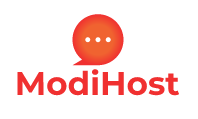Introduction
Sleep is a vital component of our overall well-being. Getting a restful night’s sleep is essential for our physical health, mental clarity, and emotional well-being. However, in today’s digital age, technology often disrupts our sleep patterns. The bright screens, notifications, and constant connectivity can hinder our ability to fall asleep and stay asleep.
The Role of Technology in Sleep Hygiene
While technology can be the culprit behind poor sleep, it can also be a powerful tool to improve our sleep habits. With the rise of smartphone apps and wearable devices, there is a multitude of options available to enhance our sleep hygiene.
Sleep Tracking Apps
Sleep tracking apps are designed to monitor your sleep patterns and provide insights into your sleep quality. By analyzing your movements and sleep stages, these apps can determine the duration and efficiency of your sleep. Some popular sleep tracking apps include Sleep Cycle, Pillow, and SleepScore.
White Noise Apps
White noise apps play soothing sounds, such as raindrops or ocean waves, to create a consistent background noise that helps drown out other disturbances. These apps can mask disruptive sounds and create a calming environment for sleep. Popular white noise apps include Relax Melodies, White Noise Lite, and Noisli.
Smart Lights
Smart lights can help regulate your sleep-wake cycles by adjusting the color and intensity of light in your environment. They mimic natural light patterns to promote wakefulness in the morning and create a relaxing atmosphere in the evening. Philips Hue and LIFX are popular smart light brands that offer customizable lighting options.
Wake-Up Light Alarm Clocks
Wake-up light alarm clocks simulate a sunrise effect by gradually increasing the light intensity, mimicking the natural waking process. These alarms gently awaken you from sleep, making you feel more refreshed and energized. Some popular options include the Philips Wake-Up Light and the Lumie Bodyclock.
Blocking Blue Light
Blue light emitted by screens disrupts our natural sleep-wake cycle by suppressing melatonin production. To counteract this, there are apps that filter out blue light and reduce eye strain. Examples of blue light blocking apps include Twilight, f.lux, and Night Shift.
Conclusion
While technology can be a hindrance to sleep, with the right apps and devices, it can also be a valuable aid to improve our sleep hygiene. Sleep tracking apps, white noise apps, smart lights, wake-up light alarm clocks, and blue light blocking apps are just a few examples of the many tools available to promote better sleep. By incorporating these technologies into our bedtime routines, we can harness the power of technology to optimize our sleep and wake up feeling refreshed and rejuvenated.
